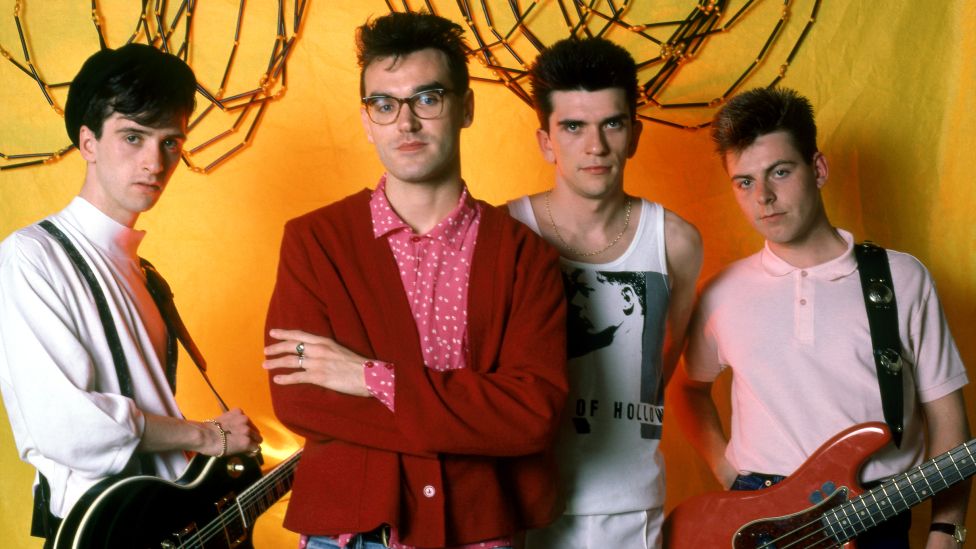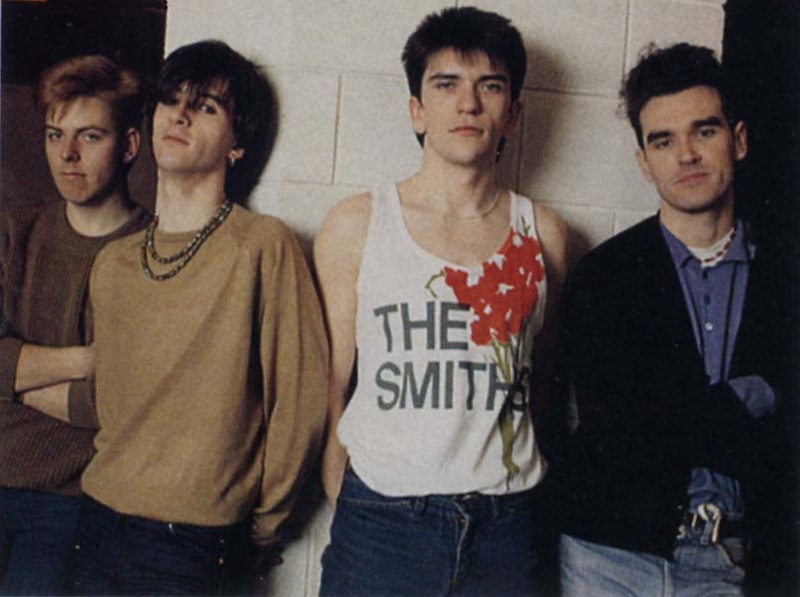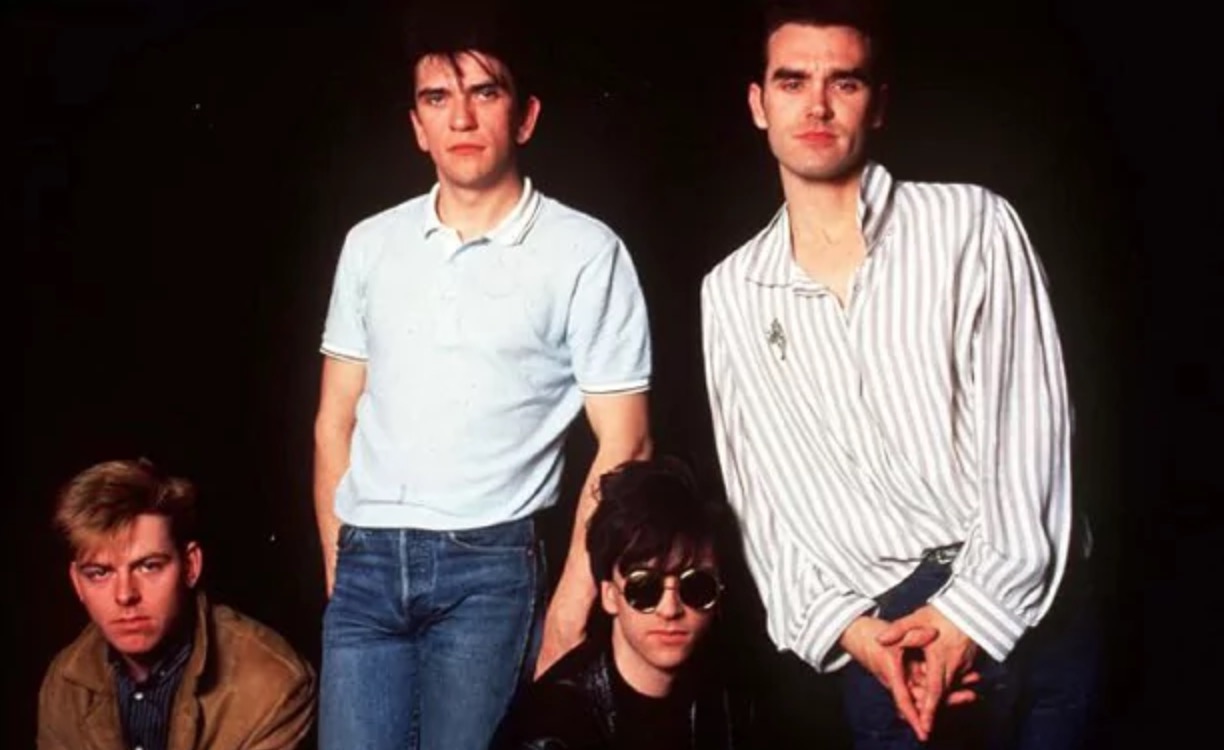“Heaven Knows I’m Miserable Now”-The Smiths’

The Smiths’ “Heaven Knows I’m Miserable Now”: A Melancholic Reflection on Modern Discontent
Released in 1984, The Smiths’ “Heaven Knows I’m Miserable Now” is a quintessential example of the band’s ability to blend melancholic lyrics with upbeat, jangly guitar music. Written by Morrissey and Johnny Marr, the song reflects the distinctive sound and lyrical themes that characterized The Smiths’ work, capturing a sense of disillusionment and existential ennui with a touch of irony and wit.
Musically, the song features a bright, upbeat melody that contrasts starkly with its somber lyrical content. Johnny Marr’s jangly guitar riffs and lively rhythm section create an engaging, almost cheerful sound that belies the song’s lyrical introspection. This juxtaposition of upbeat music and melancholic themes is a hallmark of The Smiths’ style, providing a sense of irony that enriches the song’s emotional impact. Marr’s guitar work, characterized by its clean, melodic lines, adds a layer of complexity to the song, reflecting the bittersweet nature of the lyrics.

Lyrically, “Heaven Knows I’m Miserable Now” explores themes of discontent and dissatisfaction with modern life. Morrissey’s lyrics are a self-deprecating commentary on personal and social malaise. The opening lines, “I was happy in the haze of a drunken hour / But heaven knows I’m miserable now,” set the tone for the song’s exploration of inner turmoil and dissatisfaction. The song’s chorus, with its repeated declaration of misery, captures a sense of resignation and frustration that resonates with listeners who may feel similarly disenchanted with their own lives.

The song’s narrative voice reflects a feeling of being trapped in a cycle of unfulfilled desires and unmet expectations. The protagonist’s complaints about his job, relationships, and general state of being convey a sense of existential boredom and frustration. Morrissey’s distinctive vocal delivery, with its mixture of irony and earnestness, adds depth to the song’s portrayal of modern discontent. His voice conveys a sense of weary introspection, making the song’s message all the more poignant.

“Heaven Knows I’m Miserable Now” also exemplifies The Smiths’ unique ability to combine introspective and often bleak lyrical themes with a seemingly light-hearted musical approach. This contrast highlights the band’s skill in addressing serious and often difficult subjects with a sense of detachment and wit. The song’s upbeat tempo and catchy melody, juxtaposed with its melancholic lyrics, create a complex emotional landscape that reflects the contradictory nature of human experience.
The song’s release during the mid-1980s, a period marked by significant social and economic change in the UK, also adds to its cultural significance. The sense of disillusionment expressed in the song can be seen as a reflection of broader societal anxieties and uncertainties of the time. The Smiths’ music, with its focus on personal and social dissatisfaction, resonated with a generation experiencing profound change and uncertainty.

In conclusion, The Smiths’ “Heaven Knows I’m Miserable Now” is a powerful example of the band’s ability to blend melancholic introspection with upbeat musicality. Through its ironic contrast of music and lyrics, the song captures a sense of modern discontent and existential frustration, reflecting the broader cultural anxieties of its time. Morrissey’s poignant lyrics and Johnny Marr’s jangly guitar work combine to create a song that remains a defining piece of The Smiths’ discography and a lasting reflection on the complexities of human emotion.











